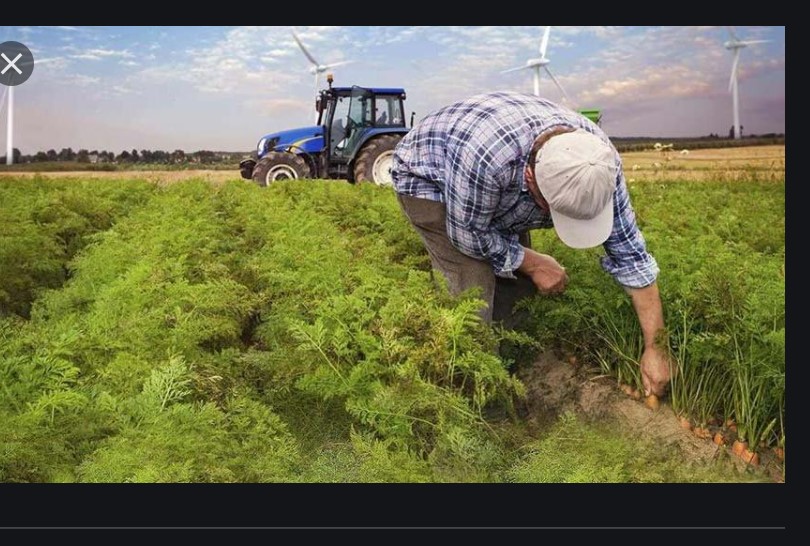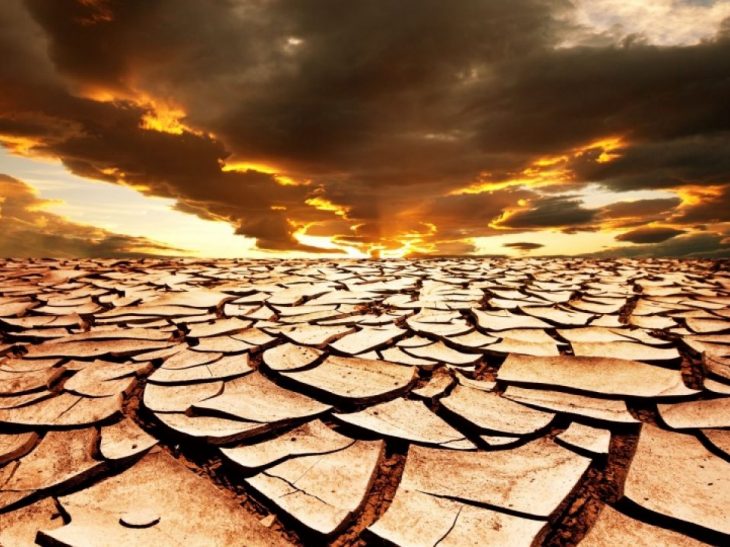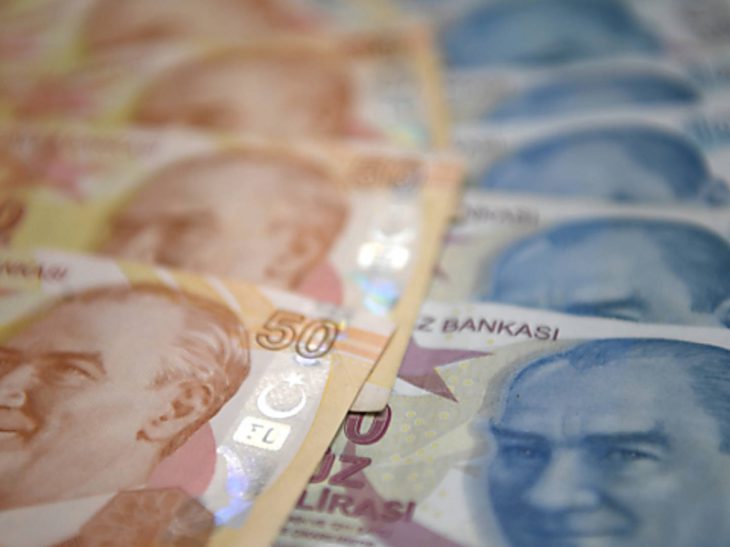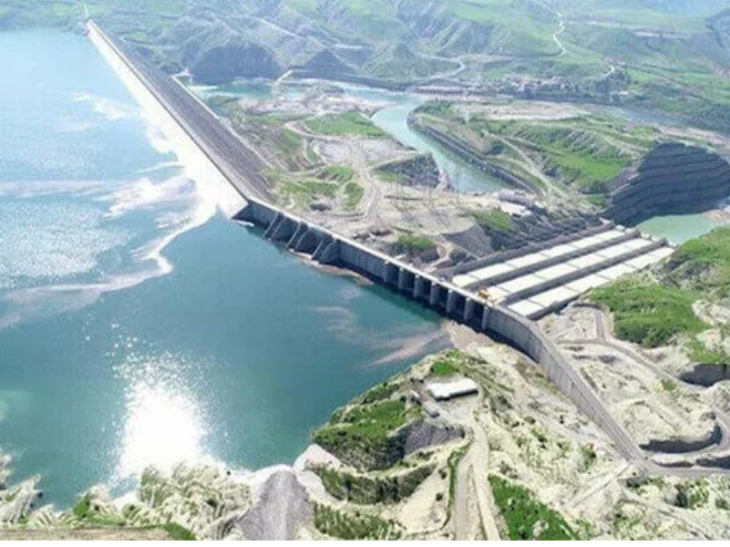Turkey’s climate problem hits agriculture hard
 tarim2
tarim2
In winter of 2020, the massive dams, and reservoirs that supply water to Istanbul's 15 million residents fell to critically low levels, sparking fears of shortages.
Late-arriving snow and rain ultimately gave Turkey's largest city a reprieve. But water and climate experts say the country's water worries are far from over - and more dams are part of the problem. Turkey’s top most agri-expert Mr Ali Ekber Yildirim stated in his recent YouTube video that unless the Central Anatoli receives plentiful precipitation in the next few weeks, grains and legumes crop yields could drop drastically.
"Instead of trying to reduce our water demand, or decrease the amount lost through broken pipes and leaks, we are just focused on creating more supply by building new dams," said Akgun Ilhan, a water management expert at the Istanbul Policy Center.
Turkey has built more than 1,000 new dams over the last 18 years, with 90 more expected to be completed in 2021, according to the country's General Directorate of State Hydraulic Works (DSI).
Figures from the DSI show that available water in Turkey has been dropping steadily over the past two decades, from about 1,650 cubic meters per person in 2000 to less than 1,350 in 2020.
The United Nations defines a country as water-stressed if it falls below 1,700 cubic meters per person, and water-scarce if it reaches 1,000 cubic meters.
Population growth, urbanization, climate change, and - critics like Ilhan say - poor water management are all straining Turkey's water supplies.
As that happens, shared water has become an increasing source of political tension between Turkey and its downstream neighbors Iraq and Syria.
"There is no difference between protecting our water and protecting our homeland," Turkish President Recep Tayyip Erdogan said in March, at a ceremony inaugurating a new parliamentary Water Council. At the event, Erdogan promised 5.2 billion lira ($645 million) in water investments including new dams, water-treatment plants, and improved irrigation.
So far, water-saving drip and sprinkler irrigation are used on less than a third of Turkey's 6.7 million hectares of irrigated farmland, according to the FAO.
Efforts to get farmers to shift to water-saving - but also energy-demanding - irrigation methods so far have yielded "no major change," said Gokhan Ozertan, a professor of economics at Istanbul's Bogazici University.
Climate risks
Turkey's water troubles are likely to intensify as the effects of climate change increase in frequency and severity, said Ilhan, a water management expert.
"Turkey has been facing droughts every four or five years since the late 1980s, and climate projections show that precipitation levels will further diminish," she explained.
The Turkish government has repeatedly pledged to fight climate change, announcing a new 14-point strategy in February which includes boosting solar and wind power capacity and reducing fossil fuel use in buildings by 25 percent by 2023.
However, climate impacts like drought and flooding are intensifying and may cut yields of key Turkish export crops like hazelnuts, apricots, and wheat by as much as 40 percent in the coming decades, according to Ozertan's projections.
Many farmers who struggle to make a living end up relocating to big cities like Istanbul, the capital Ankara, and the Aegean port city of Izmir, putting further pressure on water supplies there.
New vision
The growing municipality of Izmir, in western Turkey, is trying to break that cycle for residents of the city and its surrounding areas.
The river basins that provide water to the city have become strained in part by the growing production of water-intensive fodder for cattle, said Guven Eken, an advisor to Izmir Mayor Tunc Soyer.
So the municipality has begun using targeted subsidies, buying guarantees, and marketing support to encourage farmers to take up less-thirsty crops and growing methods, he explained.
That includes focusing on more high-value foods like olives and goat's cheese that were traditionally produced in the region and are better suited to its dry climate, as well as swapping to more efficient irrigation, Eken said.
Izmir officials are also shoring up infrastructure to reduce water waste in urban areas.
Nationwide, nearly half of Turkey's drinking water is lost to leaks before it reaches the tap, according to a 2020 report published by the Water Policy Association, an Ankara-based nongovernmental organization.
In March, Izmir hosted a summit for mayors and other officials from 22 cities led by Turkey's political opposition, representing about 65 percent of the country's population.
The mayors signed a manifesto pledging to better manage water, in line with some of the strategies Izmir is now pursuing and called on the national government to do the same.
"The manifesto has no legal obligations, but it's on the right track," Ilhan said.
"Even putting 10 percent of it into practice would make a great change."
Food insecurity, water shortage Turkey's top climate change risks
"Drought is the most pressing issue we need to deal with ... As a country, the most important problem (we have) in the context of climate change is our food security," Levent Kurnaz said in an interview with Anadolu Agency (AA) on climate-change-related extreme weather events. Kurnaz currently serves at the Center for Climate Change and Policy Studies at Boğaziçi University.
Stressing that water shortages would "reflect more heavily on agriculture," Kurnaz said the matter demanded urgent action. According to the scientist, Turkey needs to preserve all the water resources it can and maximize its arable basins, especially since three-fourths of its lands are non-agricultural.
According to Metropoll’s April survey, 27% of the participants are unable to meet their kitchen expenditures. This is partly because real disposable incomes are falling, but primarily because the true food inflation is way above the 17% YoY measured by Turkstat.
He also noted the health risks related to falling water levels amid rising temperatures and the strain on the health care system caused by the COVID-19 pandemic, now in its second year.
"So, let's say that there's a heat wave in Istanbul and we see 45 degrees, there could be an incredible loss of life and we're not ready for such problems," he said. Turkey is also not prepared for other dangerous diseases, such as malaria and the West Nile virus, which experts fear may arrive in Turkey with the changing climate.
Once the outbreak subsides, however, the top item on Turkey's to-do list against climate change should be the modernization of its agriculture, he said.
"We have to modernize the irrigation systems in agriculture. We need to use only the amount of water needed for the plant and build a system in which no water is wasted."
Extreme weather
One expected consequence of global climate change is an increase in the frequency and severity of extreme weather events, said meteorologist Hüseyin Toros, currently a professor at the Meteorological Engineering Department of Istanbul Technical University (ITU). Turkey has been in the midst of an increasing trend in meteorological disasters in the last decade.
"There's a correlation between the increase in global warming and increase of extreme weather events in recent years," he said.
Owing to its geographical location, Turkey's southern regions are marked by hot deserts, while the Siberian cold dominates in the northeast. To its west, the influence of the Atlantic Ocean – an expansive source of water vapor – also pumps energy in Turkey's Mediterranean and Aegean coasts.
Since a partial drought last year, work has begun in Turkey to harvest and store rainwater, as well as to provide domestic water resources on-site, said Toros, in what he said was a great practice in socio-economic terms.
He highlighted that these practices were introduced after extensive media coverage of the dry season that increased public awareness of the issue.
"(However), since our country is not rich in water, water resources must be used efficiently," he warned, stressing that "no resources are unlimited."
Turkey needs to raise agricultural productivity rapidly to obtain more yield from a smaller acreage and quit building more hydro-electric dams which destroy the natural balance of the local environment, as well as lead to inefficient water usage.
This would require an intensive farmer re-education effort, as well as the state deregulating the sector to allow more commercialization. While AKP has experimented with agricultural reform since it came to power, the results have not been reflected to crop yields. The major reason is an arbitrary price regulation and subsidy mechanism, the hazards of which are compounded by the habit of opening the import gates, anytime the price of any particular food item soars.
In recent years, hefty penalties levied on presumed “price-fixing” grocery stores and market chains were passed up the food chain all the way to the farmer, who has seen her income droop year by year.
Follow our English language YouTube videos @ REAL TURKEY: https://www.youtube.com/channel/UCKpFJB4GFiNkhmpVZQ_d9Rg
And content at Twitter: @AtillaEng
Facebook: Real Turkey Channel: https://www.facebook.com/realturkeychannel/





